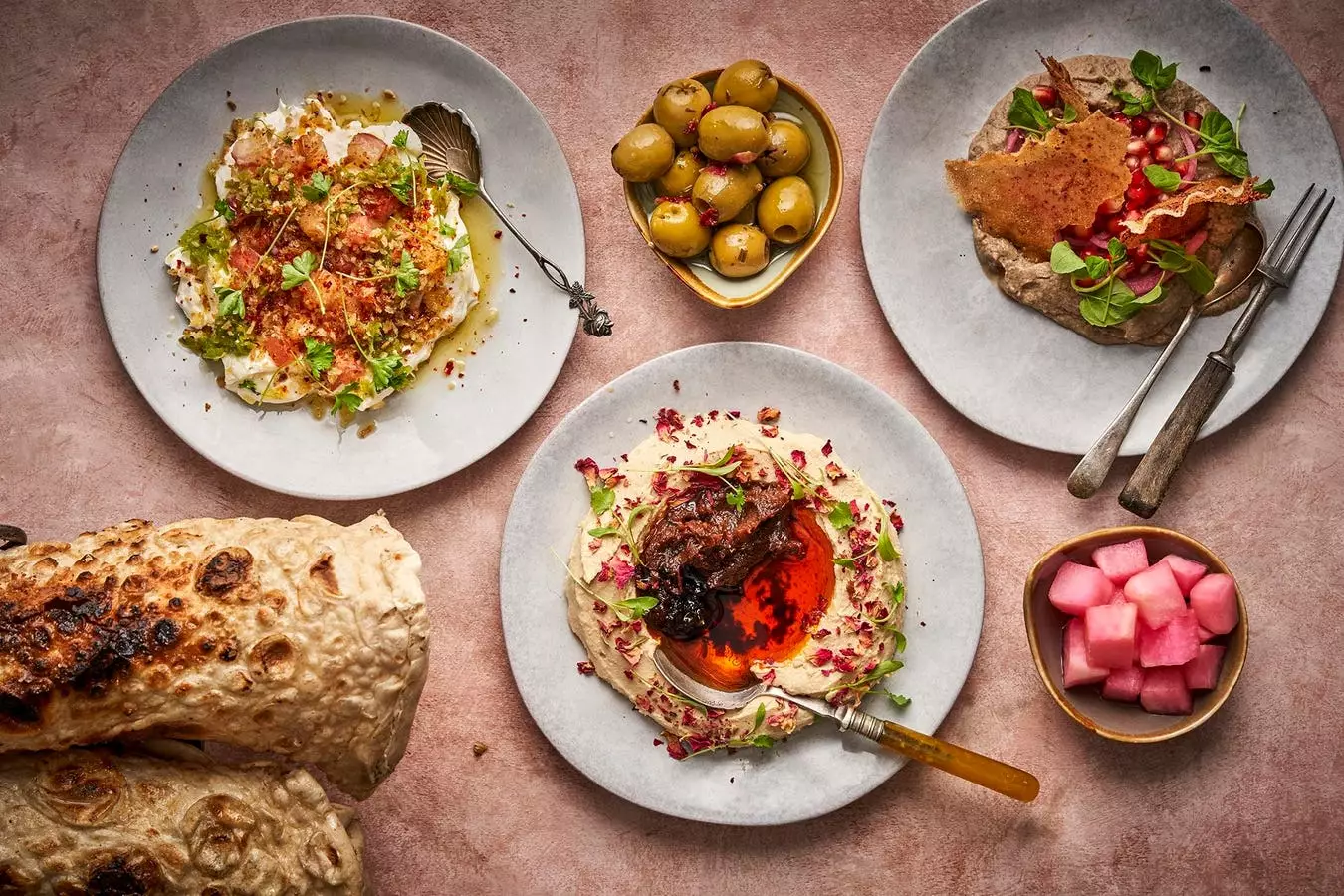In the quaint vicinity of Glastonbury, where legends intertwine with everyday life, a culinary renaissance is underway. Ayesha Kalaji’s Middle Eastern restaurant, Queen of Cups, has garnered adulation in a remarkably short span of time. The reviews are effusive—terms like “utterly bloody sensational” and “a true hidden gem” pepper the praises from patrons who revel in a dining experience unlike any other. Diving into the essence of this restaurant unveils not just a meal but an emotional journey crafted with resilience and creativity.
Kalaji’s venture into the gastronomic scene began under the most challenging circumstances. “We opened the day after people were allowed to eat indoors again. It was a very nervous world and a very difficult time to open a restaurant,” she reflects on establishing Queen of Cups amid the pandemic. The realities of this moment were daunting, yet Kalaji and her team transformed a rundown coaching house into a vibrant oasis for the community in just six weeks. Her experience is a testament to the struggles of many restaurateurs during turbulent times, where the balance between risk and reward hangs perilously.
Highlighting her determination, Kalaji humorously advises, “If anyone asks if you want to turn a 17th-century coaching house into a restaurant in 6 weeks, say no!” This playful acknowledgment of difficulty serves as the bedrock for her philosophy—embracing challenges while keeping a light-hearted spirit. The frantic hustle of testing recipes by day and painting by night combined with familial support, like her mother jet-washing the garden, showcases a communal effort that infuses the space with warmth and authenticity.
Kalaji’s vision extended beyond mere food; she sought to create a sanctuary that mirrored the spiritual heritage of Glastonbury. By naming her restaurant after a tarot card—Queen of Cups, symbolizing feminine energy, connection, and compassion—she established a unique identity that resonates with patrons. With mystic murals adorning the walls and an inviting atmosphere, the venue invites diners to immerse themselves in a distinct space where whimsicality and gastronomy fuse.
Glastonbury’s reputation as a hub for the ethereal makes it a fitting locale for Queen of Cups. Kalaji recalls the joy of hosting her first booking—a group of Druids—kicking off a tradition of inclusivity, where patrons are free to express themselves. “You can come in and be whoever you want to be—just as long as you’re wearing shoes!” she quips, setting the stage for a relaxed and welcoming environment.
The heart of Queen of Cups lies within its vibrant menu, a reflection of Kalaji’s Jordanian heritage and her culinary journey through notable kitchens. Unassuming yet innovative, her menu pays homage to Middle Eastern cuisine while challenging the conventional palates of her guests. Kalaji acknowledges the changing landscape of dining, remarking on the increasing familiarity of ingredients like sumac and za’atar amongst patrons. “I still relish giving people food they’ve never tried,” she states, suggesting that the world of flavors has much more to offer beyond the familiar.
Texture plays a pivotal role in her creations, with dishes designed to provoke curiosity. Kalaji’s use of ingredients like Mulukhiya introduces diners to unexpected sensations that broaden their culinary horizons. “I love the idea of expanding people’s idea of what’s pleasurable,” she shares, emphasizing her commitment to transforming traditional notions of taste.
The accolades that Queen of Cups has amassed, including a Michelin Bib Gourmand and the ‘Best Newcomer’ award at the Estrella Damm Top 100 Gastropubs, serve as a beacon of Kalaji’s astounding culinary accomplishments. “Some days I wake up gobsmacked that people have given us these awards,” she laughs, illustrating her intrinsic humility despite her successes. The recognition, while gratifying, has also cultivated a dedicated base of customers, reinforcing her mission of maintaining local ties.
Kalaji’s focus on community remains resolute, as she hosts diverse events that reinforce social bonds, illustrating her understanding of the restaurant’s role as a communal hub. From LGBTQ+ nights to jazz performances, Queen of Cups is an accessible space that fosters engagement among locals and visitors alike. “Your locals are the ones that look after you in the depths of winter,” she emphasizes, grounding her philosophy in gratitude and connection.
Looking ahead, Ayesha Kalaji envisions a future rich with opportunities for growth and exploration. Her desire to deepen connections with the local community, expand her team, and introduce new culinary experiences characterizes her ambitions. “When I win, everyone around me wins. I want us all to win together,” she reflects, encapsulating her commitment to collective success.
Queen of Cups shines as a beacon of creativity and compassion within Glastonbury, where culinary artistry intersects with spiritual vibrancy. As Kalaji continues her journey, her dedication serves not only to elevate her culinary offerings but to foster an inclusive space that invites everyone to partake in the remarkable flavors and experiences she cherishes—a testament to the power of resilience, community, and the transformative nature of food.


Leave a Reply